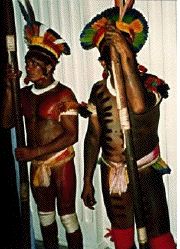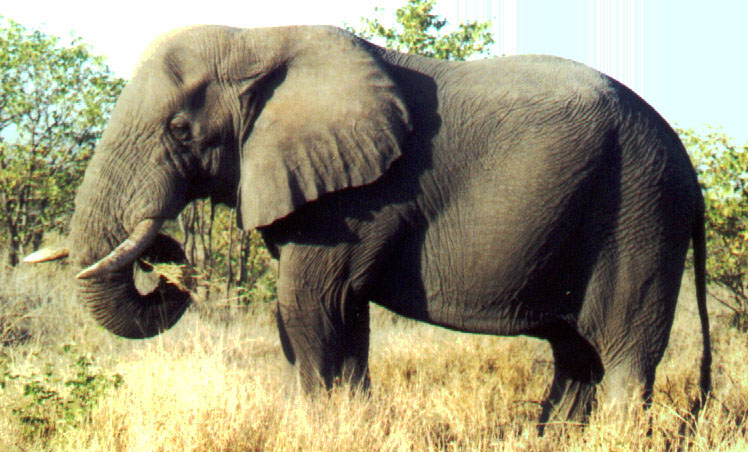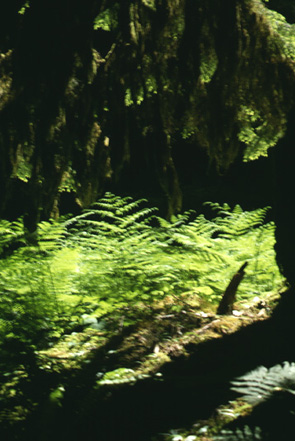Elk in the Yellowstone National Park, 1988, JVS,
Elk in the Yellowstone National Park, 1988, JVS,
"In
wildness is the preservation of the world,"said
Henry David Thoreau (1851), about the biological and cultural heritage of
our industrial civilization. Wildness
is today in retreat due to a loss of endangered species, oil drilling in the
Arctic tundra, logging old growth forests, and the twin threats of economic
growth and global warming. There are plans to sell off National Parks.
We
examine the impact of industrialization on human values by contrasting the
conservation and preservation
of biological wealth in the USA to nations around
the world over the past two centuries for you to sense the underlying role
of wilderness protection in shaping an emerging national ethos for ecosystem
protection. You may articulate in writing and in speaking your knowledge of
biological problems and policy constraints facing wildlife
and wild areas based on readings, discussions, and interviews as a primary
goal of my course. Your work should show plainly how ecology influences political
decisions. My class involves you in a reflective exercise applying scientific
laws concerning extinction; varieties of biological
diversity and recent discoveries
of medically valuable

Focusing on national, and international examples of wilderness advocacy, students will comparatively examine case studies and quantitative analysis of case based, global ecological problems, such as acid rain, global warming and urban sprawl on the health of native wild areas. I encourage participants to practice descriptive writing, analytical methods, critical thinking skills, and oral expression through either problem oriented research or work for community based, service providers whose organizational missions involve some depth of wildlife education. Those groups are the Chelonian Institute, Audubon, or Save the Manatee Club. To best grasp ecosystem management optional outings to Florida natural areas and forests are encouraged.
Roderick
F. Nash, Wilderness and the American Mind
Terry Tempest Williams, An Unspoken
Hunger
Aldo Leopold, Round River
or A Sand County Almanac (back-up)
Bill McKibben, The End of Nature
Lynn Margulis, Symbiotic Planet
∞ ∞
Murray Bookchin, Our Synthetic Environment.
Rachel Carson, Silent Spring.
Michael Pollan, Second Nature.
Sandra Steingraber, Living Downstream.
Harold Ward, Acting Locally.
Victoria Edwards, Dealing in Diversity.
William Schwartz, Voices for Wilderness.
Joseph
Siry, Marshes of the Ocean Shore.
Kruger National Park, South Africa, "A resident pacderm " JVS 2003: What is the value of wild lands without wildlife in them?

![]() Work
to do:
Work
to do:
What
must you do to do well in this course? In order that you excel in this
class I judge every day by your comments in class about the texts how ready
you are. All your grades are based on the criteria detailed below with reference
to reading texts, working in the community, relating all of the authors to
course themes, & completing all the assignments on time.
| # | What to do; | When to do it | %; value |
| 1. | Participation -- speaking in class & interpreting books; | 1 pt./week & month |
15
|
| 2. | Project -- creating an ecological wilderness, written drafts: | Sept. 28 - Nov. 9 . |
30
|
| 3. | Oral -- (4 presentations) from texts | Sept 16-19, Oct 3-5, 26, Nov 14-16. |
25
|
| 4. | Midterm “synthesizing ideas” |
9/ 28 draft; rewritten answers Oct 3 & 5. |
15
|
| 5. | Final --“examining our future” verbal presentation **: | Dec. 6; 11 AM –2 PM |
15
|
| Total |
100%
|
All assignments are graded with careful attention to each of these criteria:
{CLIFS}
1. clarity,
coherence, spelling, grammar & logical consistency
2. length
& development of your arguments, ideas, or presentations
3. information
from the class texts, library research, and / or interviews
4. frequency
of examples from the lectures, journal, notes & readings
5. substantial
discussion of the subject & introductions, summaries, conclusions.
22 Introduction: Who are we, & where
are places? “The
habitat Problem ”
24 What is wilderness;strictly speaking? Nash, pp. vii-43.
26 Outside and Uptight: “Examining
the buttoned-downed mind ”
29 Eroticism, Boundaries &
“Appetites”
Williams, pp. 79-96.
31 Selection: “the idle
hours of the ignorant”
Leopold, pp. 3-5.
2 Romantic and Transcendental
reforms
Nash, pp. 44-107.
7 Making Sense of preserving
wild areas
Nash, pp. 108-140.
9 Muir and the battle
to save the wild canyon Nash, pp. 141-181.
12 Water, wildlife and habitats
Siry, Marshes, pp. 3-11, handout WEAL
14 Biological realities as a limitation
-- species Leopold, pp 10-30. Nash, pp.
182-237
16 A philosophy of protection
(oral presentation) Nash, pp. 238-271.
19 2 views Nash Alaska
& Pollan: a dialectic
Nash. pp. 272-315, Pollan, pp. 104-127.
21 Our Common Threat: ecological
consequences
McKibben. pp. 3-46, Margulis, pp 1-4.
23-24 Field trip to the Florida natural area – is
it a wilderness? 9 AM - 5 PM
26 The “role
of symbiosis” in Ecosystems
Margulis, pp 5-12,113-129. Nash, pp. 316-341.
28 written drafts, Project
Phase One: Defining & dedicating wilderness, Nash, pp. 342-290.
30/1 TBA
Field Trip to Chelonian Institute, Oviedo, or Environmental Ed. Center, Seminole,
Fla.
3 Mid-Term
* (oral) report based on your written essay: compare Nash w/ Leopold's
views
Present a dialogue reporting on an idea or chapter in Nash, Leopold,
pp.31-33, & Williams, pp. 3-12.
5 dialogue reporting
critiques
Nash, Williams, Siry & McKibben
10 The challenges of economics
& technology Williams, pp. 132-140.
12 The End of Nature? Adaptability
& Myths McKibben. pp.
47-91, Nash 342-378.
14 Information dynamics, meaning,
and policy Williams, pp 29-147. Margulis, pp.
1-32.
17 Envisioning an Ecological Community
McKibben, pp.95-138. Leopold, pp. 264-279.
19 Basic Factors: Nash,
McKibben, Margulis to Framework: Siry, Margulis, pp. 105 –
129.
21 A Vision of our Urban Future:
cases
McKibben pp. 139-170. Williams, pp. 51-78.
24 Ecological costs of enterprise
Leopold, pp. 237-263. Williams, pp. 97-131.
26 Assimilating many human demands
(oral) Williams, pp. 13-50.
Leopold, pp.96 -128.
28 Assimilating many human
demands (oral) McKibben. pp. 171-217.
31 No class. In lieu of field
trips and office visits
November
Ecolacy: Applying what we are reading to the local and regional
context.
Nature as a clue to organization: compare each author’s concepts &
work on site.
2 Day of the Dead
, Critique of bourgeois values Leopold, pp. 3-8 & 129-157, Margulis, pp.13
–32.
4 The criticism of
Bureaucratic wilderness
Leopold, pp. 158-173. Williams, pp. 133-145.
7 Climate
change (contrasting views)
McKibben, pp. 63. Siry “Feeling the Heat ”
9 Maintaining
ecological wilderness, written drafts presented as summaries in class
11-12 Field Trip to a local forested ecological
area Forests a site analysis-- (handout) 9 AM - 2 PM
14 Oral on Science
of Complexity & Sustainability
Margulis, pp. 33 –68.
16 Oral on Life,
resistance & sexuality
Margulis, pp. 69-104.
18 The Habit of Truth: what ails
wildlife? POPs --Chemicals, heat or pH? Margulis, pp. 105 – 129.
21 Endocrine disruption inquiry
Siry, Steingraber pp. 5-11 handout. (Corals & Mangroves).
28 Wilderness ecology is
a synthetic science Siry,
pp. 12-25 (handout) FORESTS
are for?
30
Relate: Nash, Siry, & Margulis
to 3-threats in Williams, McKibben & Leopold,
pp. 31-33 &145-157.
December
2,_ Last Class:
12/6 11 AM –2 PM, Final Exam, oral report on future wild **
last version of written essay is also due.
Week number & lessons Questions to answer in Assignments & Activities

1
Introduction: “The Habitat
Problem,” Maps as models for decision-making.
How can service to the community be one means to learn about wildlife
?
2
What is science literacy when defining wild & wildlife?
– Siry (lecture), Nash & Williams.
3 How important are
habitats & what is a wilderness? Nash
& Williams: Make maps, (reports)
4
History & who we are: how do biotic
communities have wild potential? Nash
5
Mid-term oral & written reports: compare texts to Siry's Website on
Report:
compare & contrast evidence in Leopold,Nash & Pollan about “Country”
6
Wilderness & the environmental resistance that shapes life? McKibben
7
Why is the ethical imperative to promote wild areas so essential? McKibben,
Nash.
8
Report on causal differences in methods among Williams - Nash - Margulis
- McKibben.
9
What is your role in creating a viable wilderness reserve? -- (Service
reports) – Nash.
10
Criteria for judging the effectiveness of organizations and goals.
Nash, Williams & Siry.
11
Nature and service as a guide to personal behavior when doing something
constructive.
12 Is creating an ecological wilderness
an evolutionary uncertainty? Leopold - Williams - Siry
13
Are biological restoration & human growth inseparable to
survive? McKibben, Margulis.
14
Reporting about and evaluating each other’s projects for content,
impact & meaning.
![]()
F inal Exam: Dec. 6; 11 AM –2 PM
oral &
written, redrafted report: on “The Future of Wilderness”
Present an answer to class 6 minutes:
What sorts of actions are needed to protect what is left of our natural
areas?
The Purposes
of the Readings is to discuss & analyze all of the author’s core
beliefs.
Speaking:
talk so that everyone understands & direct your work to this class as
your audience.
Course
Goals: In order to sharpen your analysis, the goals of this course sustain
3 objectives of ecological citizenship in relation to your improving your
speaking, expression & critical thinking ability:
one:
to provide you practice for greater ease and/or
success in careers and job interviews.
two:
to honestly use reasoning and enhance your contributions
to a project team or jury.
three:
to act accountably in giving sworn testimony or formal
talks on complex problems .
This
4 credit hour course is an intensive reading, analysis and critical thinking
course where writing is done to both interpret contrasting arguments and synthesize
related evidence from different authors. All written work should be footnoted
(or use end notes) with appropriate references to support your statements
of fact and opinions and have a list of sources consulted.
For
every hour in class I expect you to study for three hours because
I reward your hard work and revising your assignments for clearer descriptions,
accurate references and logical arguments.
I
am here to encourage you to perform well and excel in your studies,
by improving your analytical and argumentation skills. Meeting with me in
my office is done to identify your personal means to reach your goals, by
assessing your reading, note taking and writing skills. Your being an effective
thinker with respect to all class materials that you are asked to synthesize
is my priority.
![]()
Detailed
requirements:
Oral
present descriptive, argumentative and analytical
material to the class in 3-5 minute talks,
by comparing & contrasting Leopold’s & Nash's approaches and
beliefs about country.
Make a visual representation, provide an overhead transparency and turn in your notes!
Midterm
* A problem solving two day experience based on discussion from which you
write a
3 pp. Focus
paper (typed, data & summary) on “How has wildness
shaped our society?”
Siry's, Williams’ and Nash’s views contrasted with Leopold, Pollan
& McKibben. Due Oct. 5.
Project:
select a theme * or service provider to work with in order to protect wilderness.
In the third week, select a service provider and write-up themes to develop
into a project composed of written text, photographic data, archival information
or interviews that clarifies the readings. A summary and abstract are shred
on Nov. 18, with all members of the class for their responses.
Answer: “ how is biological literacy crucial to changing people’s behavior in their surroundings as their habits alter wilderness? ” Can be part of a service-learning project.
A Theme is selected before midterm (9-28) & refined after
seeing me. Draft due Nov. 9.
7 pp. typed with photos, data and summary + 1 page abstract (purpose & method)
Examples of themes that tie Nash and McKibben to Margulis and Leopold
are:
ecosystems have inherent limits that we may not ignore.
ecological thinking forms the basis of our need to reconstruct society.
human dignity imposes restraint on how we design ways to assist one another.
preserving ecological systems to nourish human needs is critically necessary.
interpreting how a particular place, as a case, reveals important ecological
clues.
Participating
summarizing the main ideas in the readings for that day; working
in the garden,
adopting an organization (service option) & correctly responding aloud
in class.
Final
Verbally present to the class a completed research project
or service opportunity –
6-7 minutes maximum. This consists of a redrafted 8-page report & a 2-page description of your purpose, technique, goals & sources. If you select the service learning option you report on the community organization, your findings and recommendations. (typed essay)
Grades:
all assignments are graded with careful attention to each of these criteria:
{CLIFS}
1. clarity, coherence, spelling, grammar & logical consistency
2. length & development of your arguments, ideas, or presentations
3. information from the class texts, library research, or interviews
4. frequency of examples from the lectures, journal, notes & readings
5. substantial discussion of the subject & introductions, summaries,
conclusions.
Late
assignments are penalized (-7%), but going to the writing center & Olin
Library is rewarded.
To
further the writing reinforcement intent of this College, in this class,
I ask you to reflect on the content of your texts, record the discussion’s
main points during class and integrate knowledge by informal writing. In addition,
writing formally requires that you rewrite your papers. This means that good
notes, completed homework, redrafting essays several times, meeting with me
for appointments and going to the Writing Center (TJs) are my expectations
so that you will practice your existing skills or form new habits to help
you excel in college and your careers by being effective learners and witnesses.
In writing is the preservation of the mind.
You are expected to do your own work and to give proper credit to others for using their ideas. Your failure to responsibly attribute ideas, phrases and sentences of others by a note in the text -- called plagiarism-- is grounds for getting a zero on your assignment, because you have committed fraud. Trust, based on verification of sources, is the basis of academic life.
My
Intentions in this course are for you to:
Come prepared to class, having read critically and synthesized the assigned
authors in order to express your ideas more clearly by carefully citing relevant
pages in a variety of writing formats like letters, e-mail, formal papers,
briefings, speeches, and summaries.
Use the
Internet weekly to communicate with others and me to exchange electronic writing.
Describe a place to the class verbally and interpret its significance in terms of wildlife and wild features by drawing a map and explaining the landscape features of interest to you.
Orally present to the class your questions drawn from notes in order to practice writing from the perspective of oral interpretation and hearing the significance of spoken words.
Write frequently in a variety of forms such as notes, e-mail, free writing,
letters and essays to convey complex ideas in a simple, clear and direct fashion.
Rewrite formal papers for class, by using the writing center at each different
stage in the composition process from invention and development to early draft
and final production.
Compare and contrast writing from books with community service experience
where service providers use a variety of writing media to convey scientific
information.
Select a community service provider and examine its performance with respect to informing the public about wildlife matters of community concern and reflecting your readings. (Option)
Develop a term long project --for other classmates to read, review, and respond
to in summary fashion-- that ties an eco-community to the central themes of
the course as expressed by the authors, the teacher and your research and
interviews.
Central
Themes:
An ecological vision ties organic and an inorganic existence
together based on five principles and forms one means of preserving wildlife
and wild areas, as biotic wealth.
Material reality is actually nested sets of interdependent relations
in which humans act, are influenced by, and affect life in a never-ending
circuit of reliant feedback reactions.
The Earth , then, is a partner in our endeavors and not some inanimate
stage upon which we act out our desires, indulge our fantasies, or satisfy
our needs.
Cyclical systems of feedback and response are a means
by which changes occur in organ systems, creatures, and ecosystems over time
making wilderness self-repairing.
People are responsible moral agents who nonetheless use machinery with
far reaching regional & even -often- unpredictable planetary influences
on wildlife and wild areas.
Education requires a community commitment to honestly convey information
allowing for and encouraging a thoughtful detection of errors, adaptive responses,
or fixing mistakes.
Knowledge, reason, scientific certainty and morality always inform effective action to allow people, like you, to improve their conditions and the places in the world they inhabit.
Last Updated on 8/25/2005.
By Joseph Siry
schedule | Courses | Atlas | site-map | Ecology | laws | quick look
Terms | Glossary | Word webs | Basic vocabulary | Advanced Vocabulary | Antonyms | Synonyms
Writing | Interviews | Free Writing
Home | Site Map | Overview